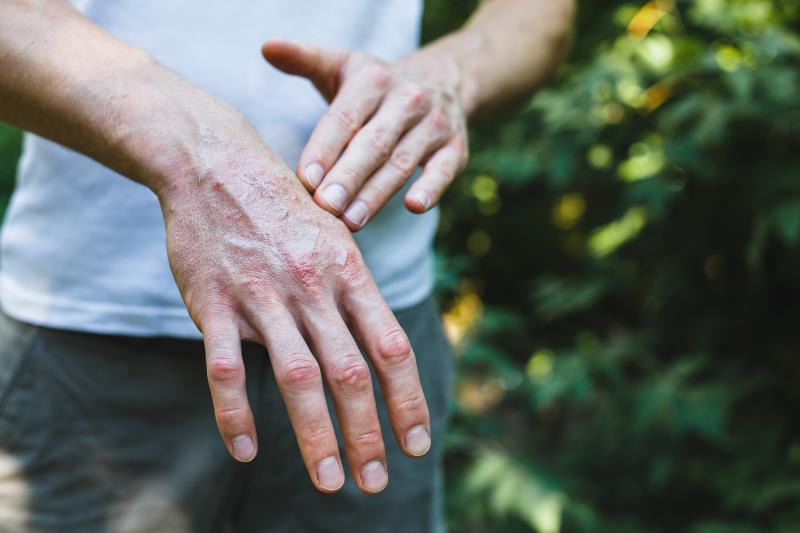
Ixekizumab induces early and durable improvements in psoriatic arthritis (PsA) patients naïve to biological disease-modifying antirheumatic drugs (bDMARDs), with response occurring as early as week 1 and persisting throughout 3 years of treatment without incremental safety risks, according to the results of the phase III SPIRIT-P1* trial.
Signs and symptoms of PsA improved, with low rates of radiographic progression, and the safety profile remained consistent with previous reports, the investigators said, adding that ixekizumab is suitable for long-term treatment of PsA patients.
In SPIRIT-P1, 381 of 417 patients entered the extension phase, among whom 243 (63.8 percent) completed the 156-week study. Patients had been assigned to placebo, adalimumab 40 mg every 2 weeks (ADA; active reference) or ixekizumab 80 mg every 2 weeks (IXEQ2W) or every 4 weeks (IXEQ4W) following an initial dose of 160 mg. At week 24 (week 16 for inadequate responders), patients on ADA (after 8-week washout) and placebo were re-randomized to IXEQ2W or IXEQ4W.
Safety analysis involved 189 patients in the IXEQ2W arm and 197 in the IXEQ4W arm. Treatment-emergent (TEAEs) and serious adverse events respectively occurred in 88 percent and 12.2 percent with IXEQ2W and in 87 percent and 18.3 percent with IXEQ4W. One patient in the latter arm died. [Rheumatology 2020;doi:10.1093/rheumatology/kez684]
Responses achieved with ixekizumab by week 52 persisted through week 156. Response rates measured using the American College of Rheumatology (ACR) criteria in IXEQ2W and IXEQ4W arms were 62.5 percent and 69.8 percent for ACR20, 56.1 percent and 51.8 percent for ACR50, and 43.8 percent and 33.4 percent for ACR70, respectively. The same was true for psoriasis area and severity index (PASI) responses, with corresponding rates of 69.1 percent and 63.5 percent for PASI 75, 64.5 percent and 51.2 percent for PASI 90, and 60.5 percent and 43.6 percent for PASI 100.
The proportion of patients without radiographic progression at week 156 was 61 percent with IXEQ2W and 71 percent with IXEQ4W.
“Long-term studies are important for evaluating the enduring benefits and safety risks of therapies for chronic, progressive diseases, such as PsA… Data from this 3-year study support the use of ixekizumab in PsA patients based on a consistent safety profile and stable, persistent efficacy across all disease domains,” according to the investigators.
“The safety results show consistency with previous studies of ixekizumab in the overall incidence of TEAEs in addition to AEs of special interest (including infections, hepatic events, allergic reactions/hypersensitivity events, cerebrocardiovascular events, depression and malignancies) over time despite increased exposure with continuous treatment,” they added. [Ann Rheum Dis 2017;76:79-87; J Am Acad Dermatol 2018;79:593-595; J Rheumatol 2018;45:367-377; Br J Dermatol 2017;177:1537-1551; J Am Acad Dermatol 2017;76:441-448.e2; Lancet 2017;389:2317-2327]
*A Study of Ixekizumab in Participants With Active Psoriatic Arthritis